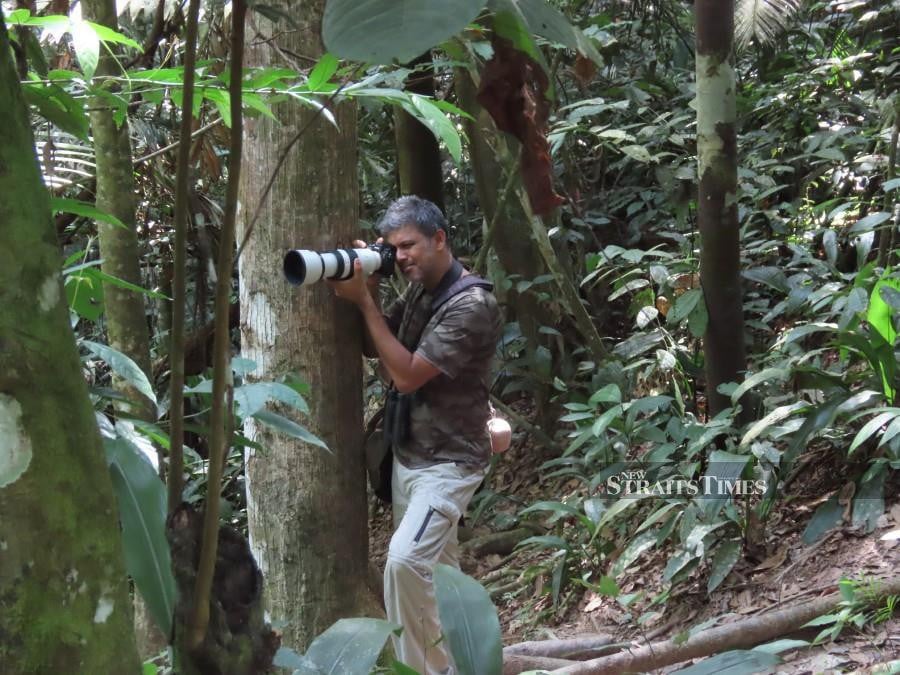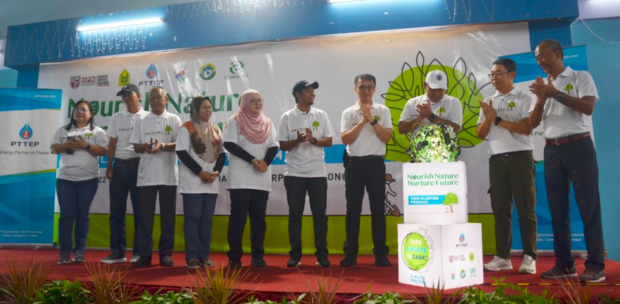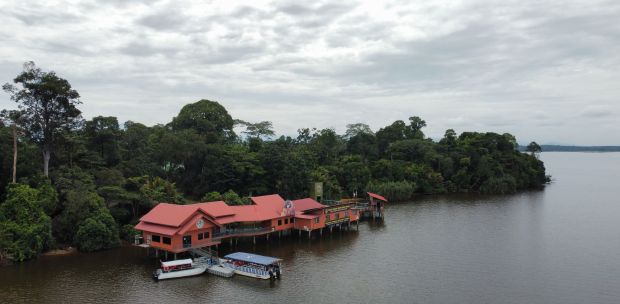THE startling, raucous laughter of "Woooo hoooo hooo hoooooo hahahahahaHAHAHAHAHAHAHAHAAAAAAAAAAAAAAA" abruptly pierces the quiet of the dense forest, sending a jolt through me. This jarring experience is far from what I expected when I agreed to join Andrew Sebastian for birdwatching.
Here I am, shivering in the cold, covered in mud, and my knees protesting with every step. I'm juggling a bird field guide and binoculars, all while navigating the treacherous forest floor trying to avoid tripping over roots. The eerie laughter echoing through the trees makes me half-wonder if we've stumbled upon a pontianak in this remote wilderness.
Meanwhile, Sebastian, lanky and focused, crouches beside me, a wide grin spread across his face. "Did you hear that?" he asks, though he's not really seeking an answer. "Look there!" he points excitedly towards a towering tree nearby. I try to follow his gaze, but see nothing but leaves and branches.
"It's a Helmeted hornbill!" he announces with enthusiasm. "Where?" I respond, peering intently at the tree. 'Up there, on that protruding branch!" he says. Realising I'm struggling to spot it, he turns to me, slightly impatient: "Use your binoculars lah!"
For Sebastian, the forest is more than just trees and trails; it's a treasure trove of natural wonders. Each bird, a unique gem, adds to the thrill of this adventure, transforming the forest into a captivating hunt for these exquisite aerial creatures.
I've known this intrepid bird guide, naturalist, chief executive officer and founder of the ecotourism-championing non-governmental organisation Ecotourism & Conservation Society of Malaysia (Ecomy) for more than a decade. His unwavering enthusiasm for nature has never faded over time. He has this almost magical, albeit slightly bewildering (and annoying), knack for turning concrete-jungle dwellers like me into bona fide nature buffs.
Now, I find myself an accidental encyclopaedia on birds, trees, and the oddball behaviours of wildlife — knowledge I never actively sought but somehow amassed. It's become my party trick, really.
At social gatherings, I casually drop facts about the mating calls of hornbills or the photosynthetic idiosyncrasies of rainforest flora. The reactions? Priceless. Who knew being a nature nerd could be so unexpectedly cool? And I have Sebastian to thank for that.
Having collaborated with Sebastian and later transitioning from a conservation background to carving my own niche in writing, I've kept an eye on his escapades over the years. Sebastian, ever the nature evangelist, has been steadfast in promoting ecotourism, all while steering his own bird and nature guiding venture.
He's like a Pied Piper of the natural world, invariably leaving a wake of newly minted nature enthusiasts behind him. It's as if he's got this infectious enthusiasm for the great outdoors that he just can't keep to himself. He's on a mission to make nature lovers out of us all — one bird sighting at a time.
Under his leadership, Ecomy blossomed into a formidable force of nature guides and naturalists, all united in the mission of championing nature and ecotourism.
"It's easier to promote conservation through ecotourism," Sebastian once shared with me, his eyes alight with that familiar fervour. "We need to bridge the gap between people and nature. Once that connection is made, conserving our natural heritage becomes a shared, more achievable goal."
His approach isn't just about showing off the beauty of the wild; it's a strategic, heartfelt campaign to kindle a collective responsibility for our planet.
Ecomy's Pangkor Nature Guides programme has been a triumph in cultivating champions for nature. This initiative focused on instilling best practices for safeguarding the vibrant heritage of Pangkor island.
The result? A cohort of well-trained, enthusiastic guides now actively involved in promoting and protecting the natural world. They're not just guiding tours, but also ambassadors of responsible ecotourism, fully embracing their roles as part of Ecomy's extended family.
These guides are now instrumental in various Ecomy projects, leveraging their skills and passion to make a real difference. With this success under its belt, the society is now poised to broaden its impact, reaching out to new communities and ecosystems, ready to replicate and scale this success story.
For the past two years, Sebastian has embarked on yet another ambitious project to empower the Orang Asli community. This initiative, in collaboration with prestigious partners like Universiti Putra Malaysia (UPM), Yayasan Hasanah, the Ministry of Finance, Bird Group Taman Negara, Jabatan Kemajuan Orang Asli and Wildlife and National Parks Department (Perhilitan), aims to equip the indigenous people with vital skills and knowledge.
This effort reflects a deep commitment to inclusivity in conservation efforts, recognising the invaluable role of local communities in preserving and promoting natural heritage. It's a testament to Ecomy's dedication to not just safeguarding nature, but also in enriching and enabling the lives of those who live closest to it.
HELPING HAND
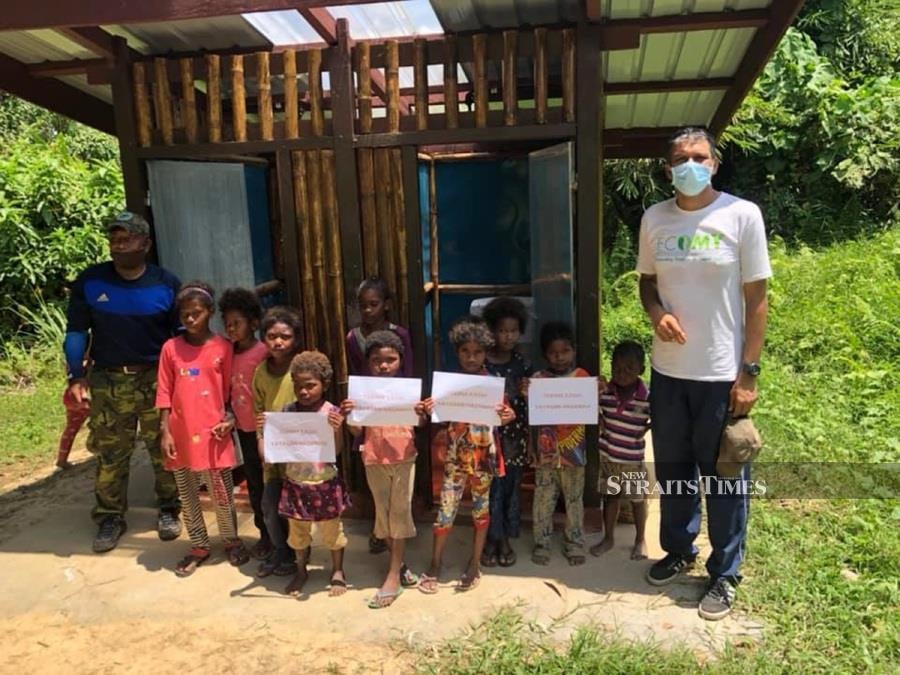
The Bateq community in Kuala Tahan, Pahang, had long been acquainted with Sebastian, a familiar face there. "During many of my bird tours, Bateq youths often assisted as helpers or runners. I thought, why not train them to do more than just assist? They showed a keen interest in bird guiding, and frankly, they knew the forest better than most of us!" the 52-year-old observed.
This insight led to a meaningful collaboration with Roslan Kassim from Bird Group Taman Negara. Together, they recognised the untapped potential in these youths. By mentoring them, they'd be nurturing not just guides, but "guardians of the forest" with an innate understanding of the terrain.
The partnership between Kuala Tahan-based Bird Group Taman Negara and Ecomy predates their latest endeavour. Ever since the pandemic struck three years ago, Sebastian and Roslan have been actively supporting the Orang Asli communities in Kuala Tahan. Their efforts have been focused on significantly improving the quality of life in these villages.
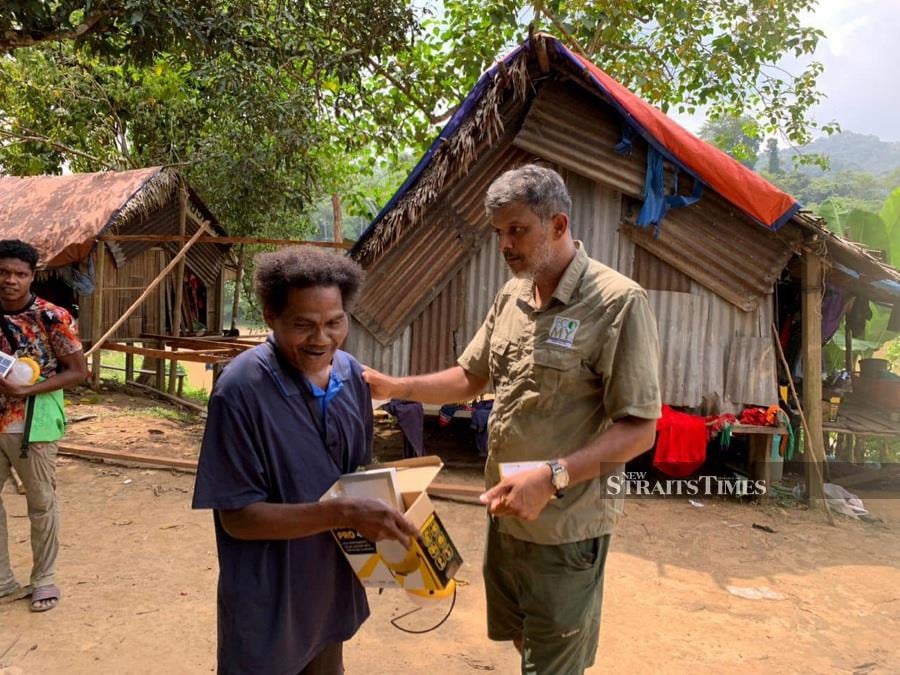
They've installed essential amenities such as water filtration systems, solar lights and pumps, and have also upgraded sanitation facilities by providing proper toilets and sewage systems across six different villages in that region.
Sebastian firmly believes in the interdependence of community welfare and successful ecotourism. "We need to help these communities because for ecotourism to create a positive impact, the lives of these communities need to be upgraded," he says.
"There must be running water and decent standards of living for tourists to come visit," he asserts, adding that to attract tourists and make ecotourism sustainable, it's essential to ensure that the local communities aren't just participants but beneficiaries of this model.
This approach, he adds, not only enhances the experience for visitors but also ensures that the communities are empowered and their dignity upheld.
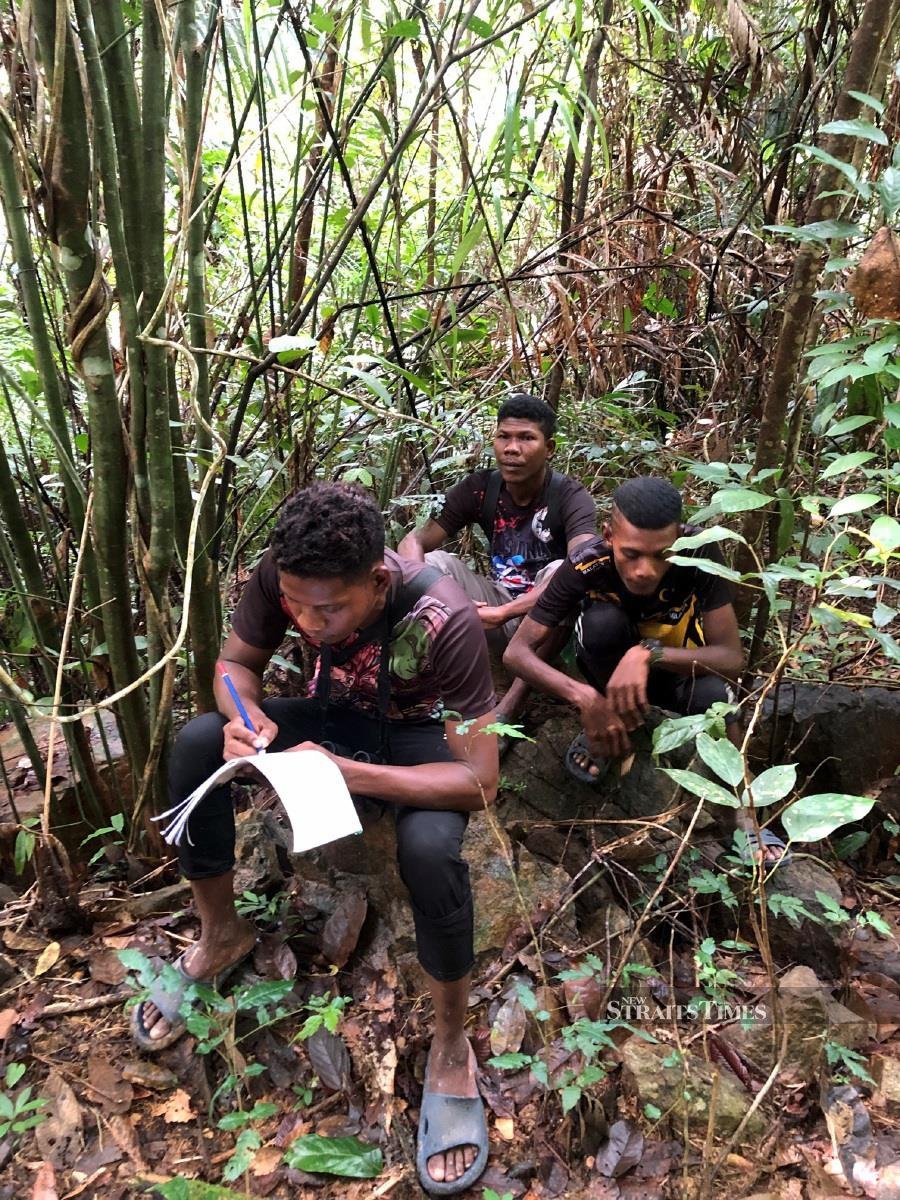
"Once that was sorted, we said, 'Okay, we're ready to talk to the youths about becoming nature guides'," he recalls. Training the youths to become nature advocates is indeed a natural progression to Sebastian's mission.
Honestly, he just can't help himself. It's like he sees a young person and thinks, "Ah, future nature champion!" His enthusiasm is so contagious, you'd half expect him to don a cape and start reciting bird calls as a rallying cry.
BATEQ NATURE GUIDES
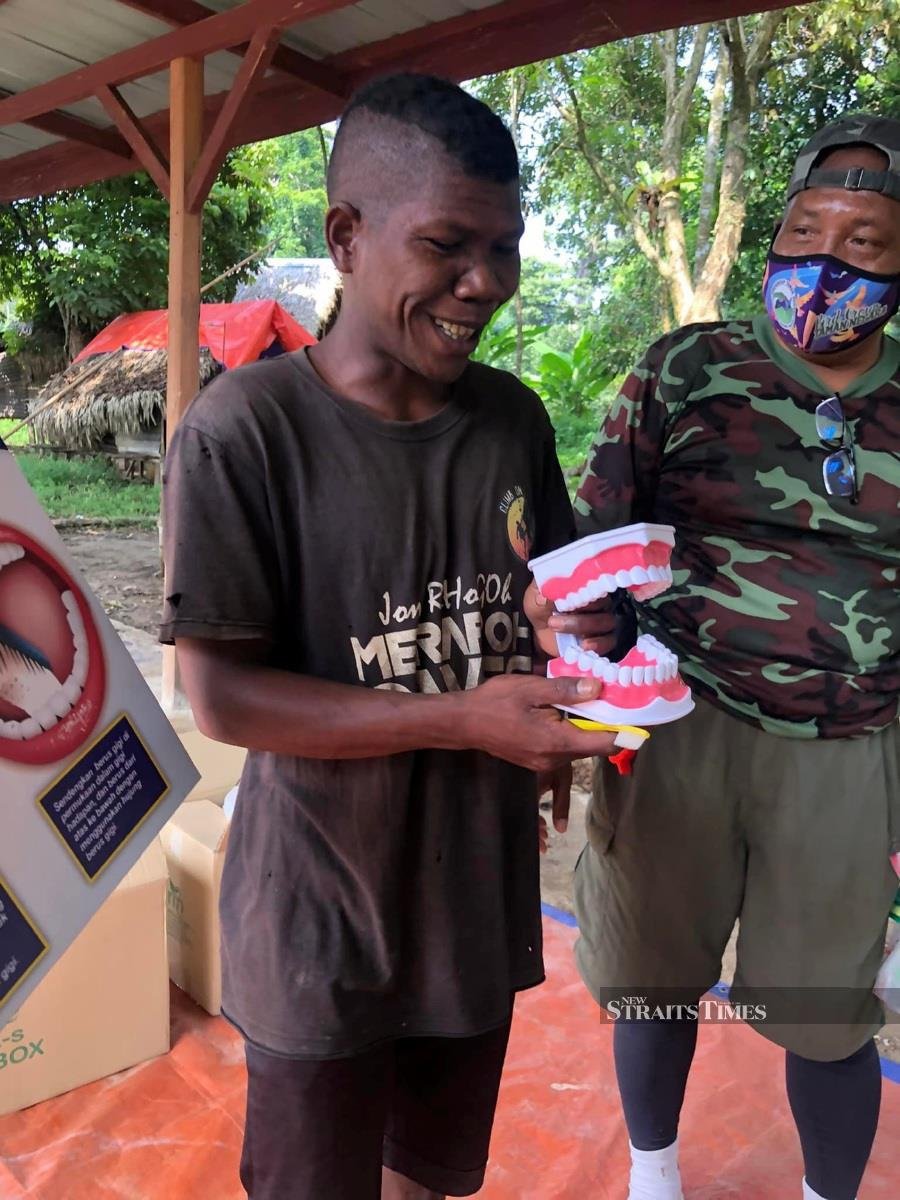
What was initially planned as a five-day course (over a six-month period) stretched into a two-year training. "We needed them to be comfortable with us and familiarise themselves with our faces. So, we decided to involve them in our projects of improving the living standards of their villages," Sebastian explains, reflecting on the unexpected timeline extension.
He elaborates on their ingenious approach: "We got them to help give talks, do interpretation, and even teach their fellow villagers basic things like how to brush teeth. This way, we started mentoring them early on."
It wasn't just a training programme but it was also a holistic community engagement strategy. By embedding themselves in the daily lives of the villagers and sharing in their routines, they built trust and rapport, laying a strong foundation for the nature guide training.
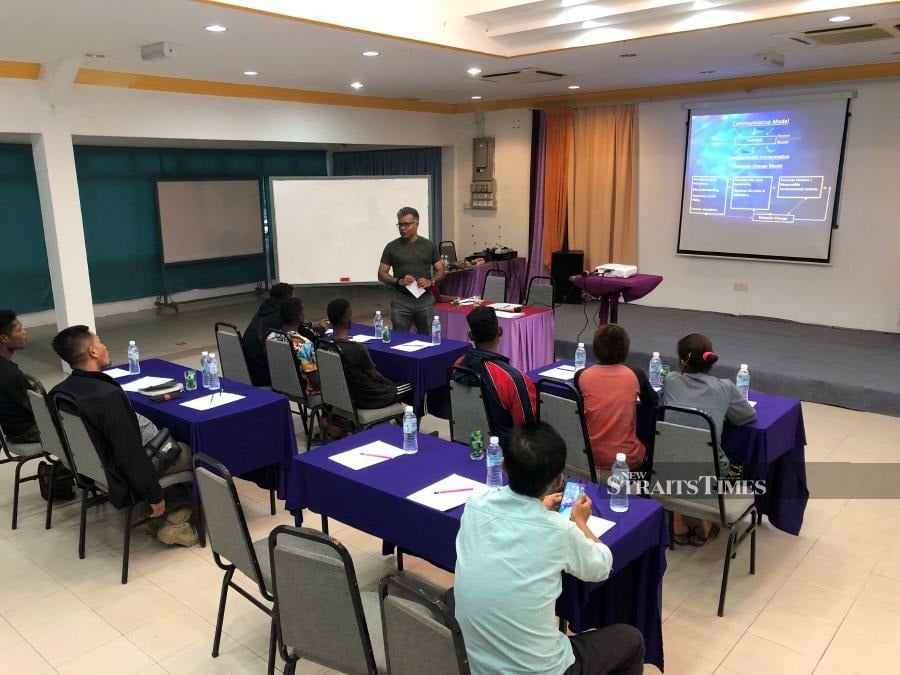
The 10 Orang Asli youths, representing five different villages, embarked on an extensive training programme that blended classroom teachings with practical sessions in the heart of the forest.
Their curriculum was comprehensive, covering everything from communication skills to hands-on training in nature interpretation, bird and wildlife guiding, and even the identification of local plants and trees.
The training was led by a team of esteemed lecturers, bringing together a wealth of knowledge and experience. Associate Professor Dr Manohar Mariappan from UPM, botanist Emeritus Professor Datuk Dr Abdul Latiff (affectionately known as Pak Teh), along with Roslan and Sebastian, poured their expertise into this programme.
Sebastian reflects on the experience with a hint of amusement and awe. "It was quite an experience," he reveals, adding: "As much as we've taught them, we found ourselves becoming students as well, learning from them." This reciprocal learning became a key aspect of their journey.
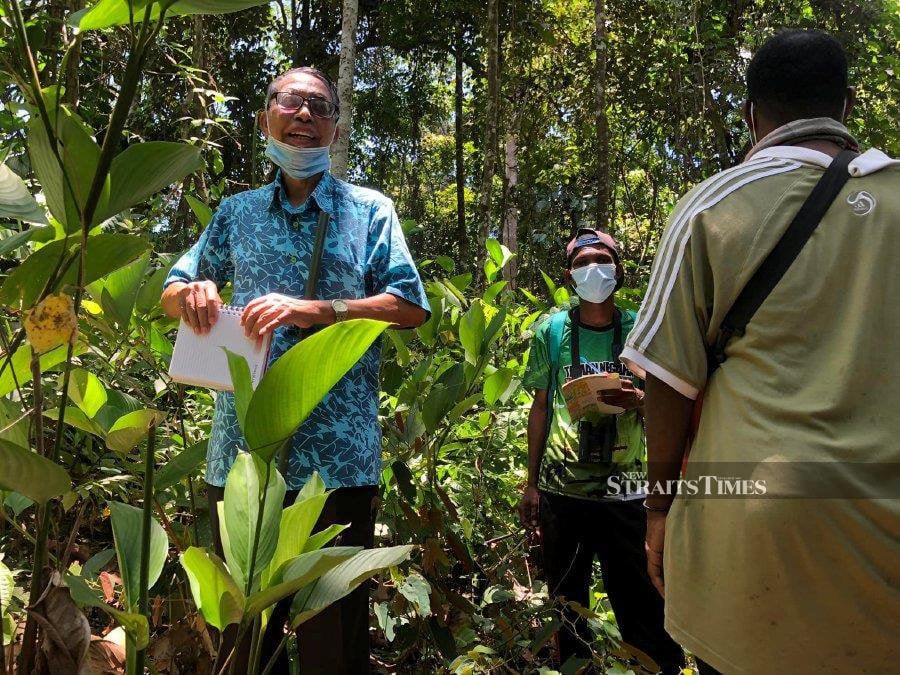
Smiling, Sebastian shares a memorable anecdote about Prof Latiff. The latter would venture into the forest with the team, dressed in his usual attire of a shirt, slacks and leather shoes. As they walked together, Prof Latiff wasn't just a teacher, but also an eager learner, genuinely fascinated by the students' knowledge.
The youths' ancestral wisdom left such an impression on him that he often found himself pulling out his little notebook to jot down notes from them.
Sebastian's experience with the group also revealed some unexpected and delightful surprises. He was amazed to discover that some of the participants were already familiar with various bird calls and could even identify different species during their guiding programme. "They knew the names of some of the birds in their Bateq language, and in that dense forest, they knew exactly where to find them!" he shares.
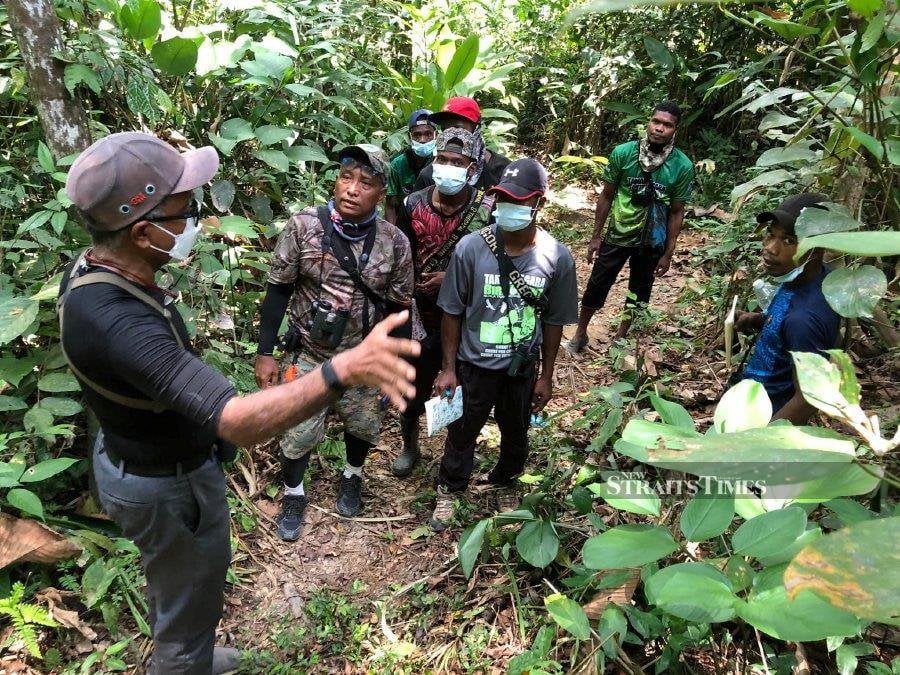
This exchange of knowledge between the trainers and the local youths underscored a beautiful synergy. It highlighted how traditional knowledge and academic learning could come together, enriching each other in the process. For Sebastian and his team, it was a humbling reminder that in the realm of nature, everyone has something to learn and something to teach.
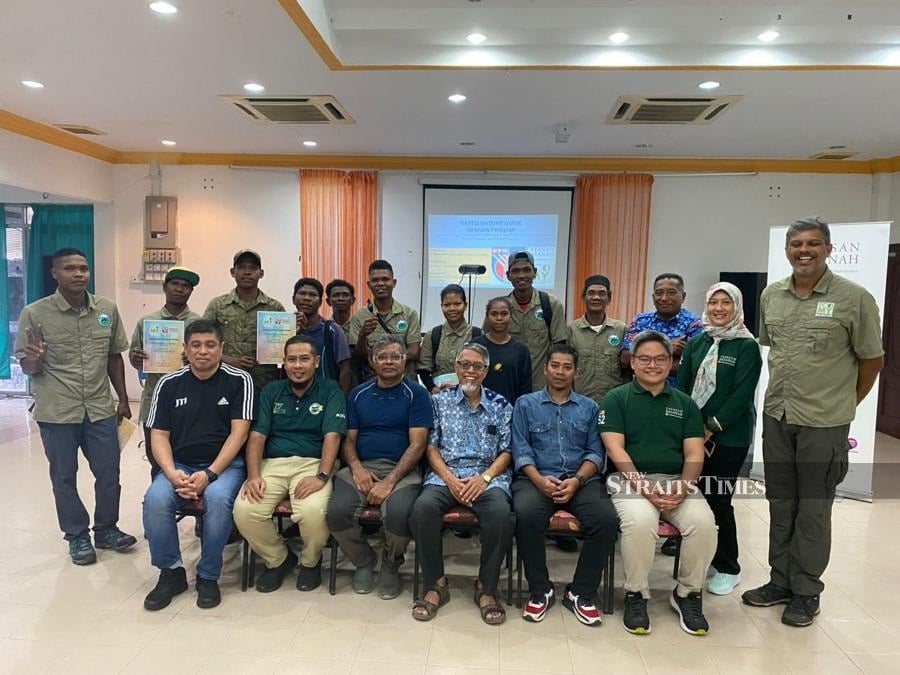
After a two-year journey, the dedicated group of youths reached a significant milestone, graduating with a certification from UPM. Sebastian shares the importance of this achievement with a sense of pride: "We didn't just want to teach them. We wanted to give them something significant that they could be proud of. This certificate is a tangible testament to their dedication and growth."
So, what happens next? I ask.
The father-of-two grins and replies: "I believe that learning is a lifelong journey. And for this group, this marks just the beginning. They need to learn how to communicate better in English and Bahasa Malaysia so that they'd be able to deal with tourists in the near future."
This isn't just about guiding tours, he insists, adding that it's about enabling these youths to engage confidently with a global audience, sharing their unique perspectives and insights.
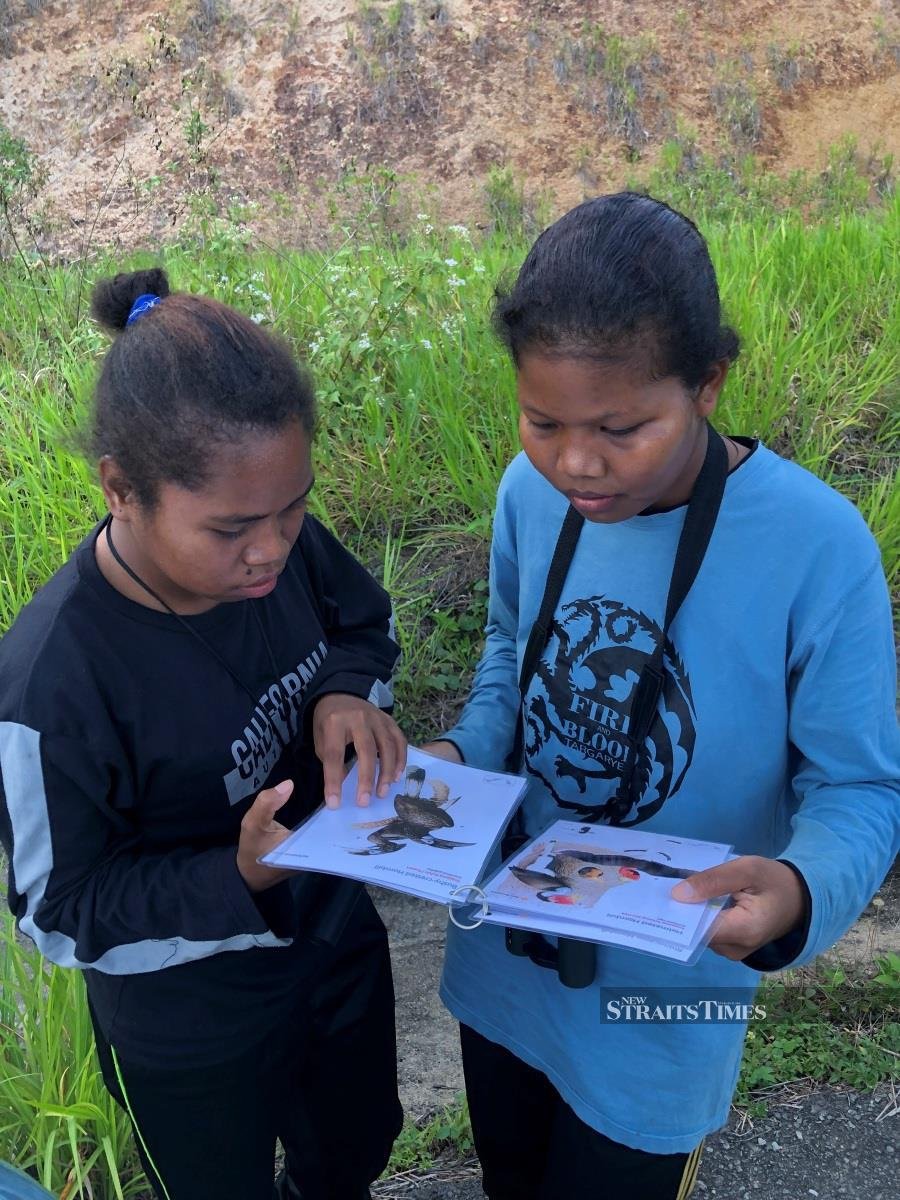
Sebastian also sees the broader potential in empowering the Orang Asli community to run ecotourism ventures. He envisions a future where they can showcase their rich culture on their own terms, blending traditional knowledge with new skills to create sustainable, culturally respectful tourism experiences.
This approach not only promotes environmental stewardship but also celebrates and preserves the unique cultural heritage of the Orang Asli, making them active participants and beneficiaries in the growing field of ecotourism.
Catching sight of my own binoculars, somewhat neglected and covered in dust, I smile inwardly. In my mind's eye, I see a scene unfolding deep in a distant forest: a group of enthusiastic Asli youths, each with a well-worn field guide in hand, scanning the treetops through their binoculars, searching for birds. Undoubtedly, Andrew's passion and guidance have left a profound imprint on them.
Like I said, he can't help himself.


